Prunus Lusitanica Angustifolia op stam Goedkopeolijfbomen.nl

Prunus angustifolia, known commonly as Chickasaw plum, Cherokee plum, Florida sand plum, sandhill plum, or sand plum, [3] is a North American species of plum-bearing tree. It was originally cultivated by Native Americans before the arrival of Europeans. [4] [5] [6] The species' name angustifolia refers to its narrow leaves.
Portugese laurier op stam (Prunus lusitanica 'Angustifolia') Directplant

Frequently bought with Select to add to basket 70 Litres + 210g Pack Of Incredibloom® - £16.99 1 x 750g Pack - £10.99 1 x 150g Pack - £8.99 Please note: This product cannot be delivered outside the United Kingdom. Plant Size Height Up to 500cm (196.9in) Spread Up to 400cm (157.5in) Hardiness & Longevity Hardy
Prunus lusitanica 'Angustifolia' op stam met hoogte 100cm Het Groene Paradijs
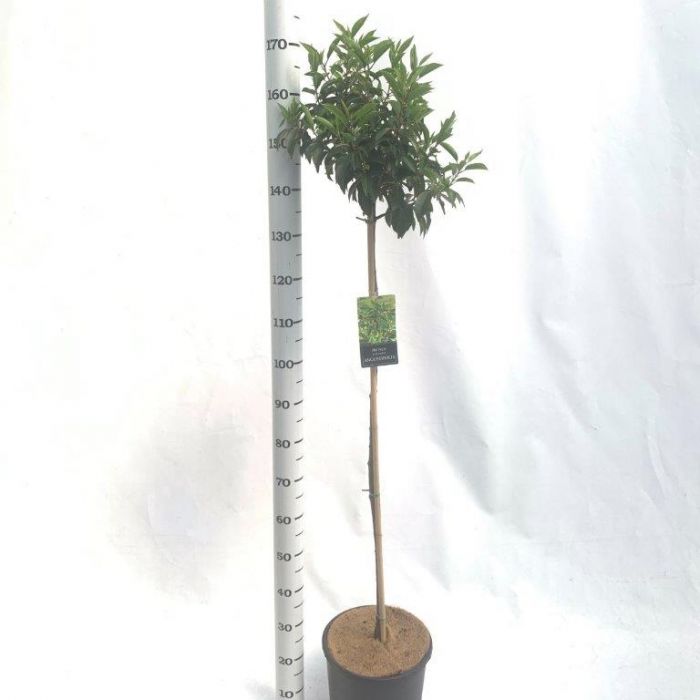
Prunus lusitanica, also known as Portuguese laurel or Portugal laurel, is a large, evergreen shrub or small tree. It has long, shiny, dark green leaves on dark red stems. Small, white flowers are borne on long racemes in early summer, popular with bees and other pollinators.
Prunus Lusitanica Angustifolia op stam

Prunus lusitanica 'Angustifolia'. Grows from a shrub into a small to medium-size tree with a very dense branching and round crown to around 15 m but usually no more than about 10 m tall. The young twigs are conspicuously purple coloured which contrasts nicely with the dark green glossy leaf. The leaves are smaller and distinctly narrower than.
Portugese laurier op stam Prunus Lusitanica 'Angustifolia'
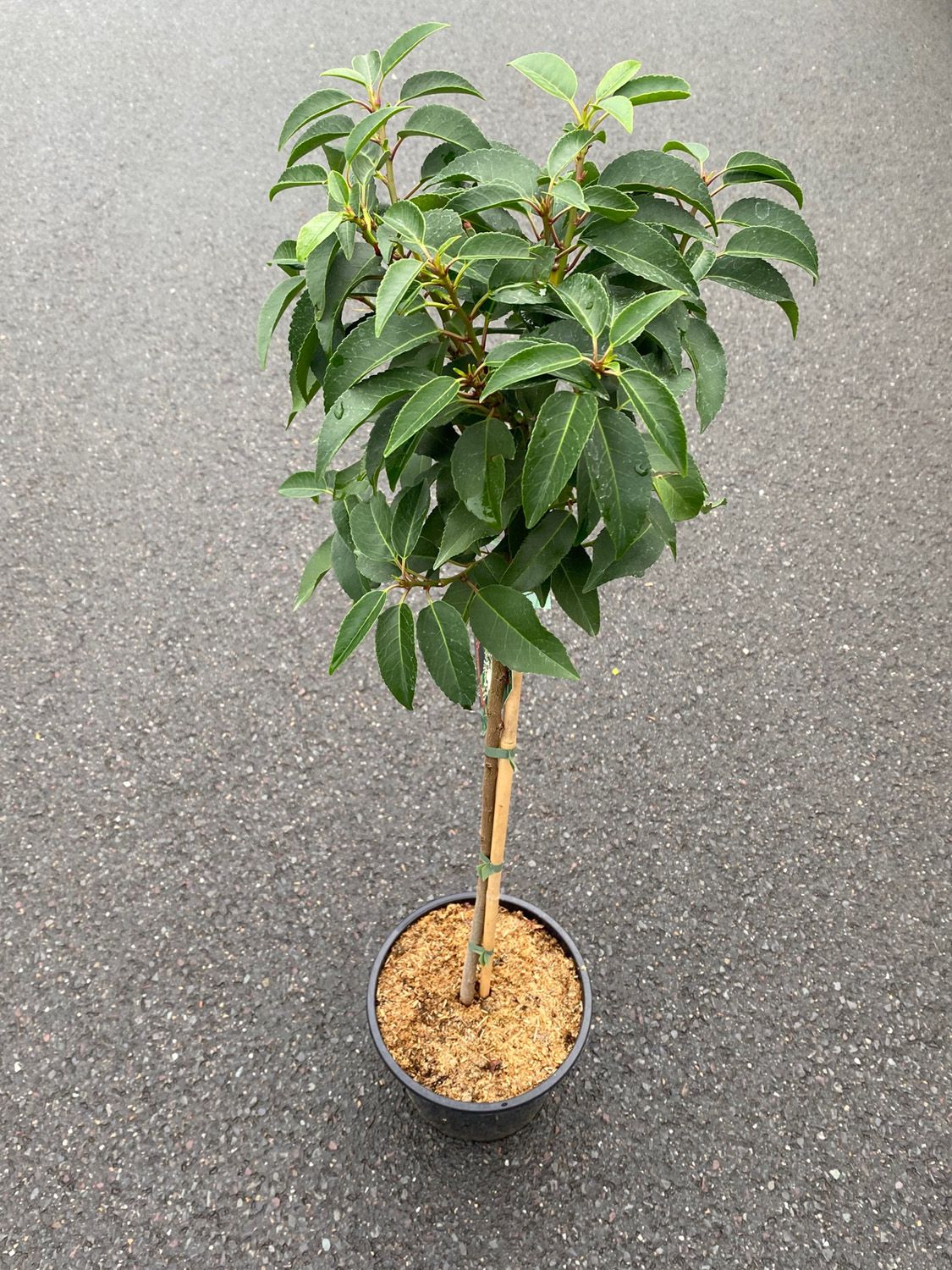
Prunus angustifolia, commonly called Chickasaw plum, is a deciduous Missouri native multi-stemmed shrub or small tree which occurs in thickets, pastures, fields, fencerows, stream banks and disturbed areas scattered primarily in central and southern Missouri south of the Missouri River.
Portugese laurier op stam (Prunus lusitanica Prunus

Scientific name: Prunus angustifolia Pronunciation: PROO-nus an-gus-tih-FOLE-ee-uh Common name (s): Chickasaw plum Family: Rosaceae USDA hardiness zones: 6A through 9B (Figure 2) Origin: native to the southern United States UF/IFAS Invasive Assessment Status: native
Prunus Lusitanica Angustifolia op stam Goedkopeolijfbomen.nl

Bushy. Potentially harmful. Leaves and fruit may be harmful if ingested. Wear gloves and other protective equipment when handling. Genus. Prunus can be deciduous or evergreen trees or shrubs with showy flowers in spring, and often good autumn foliage colour. Some have edible fruit in autumn, and a few species have ornamental bark.
Portugese laurierkers op stam Prunus Lusitanica Angustifolia 85 cm
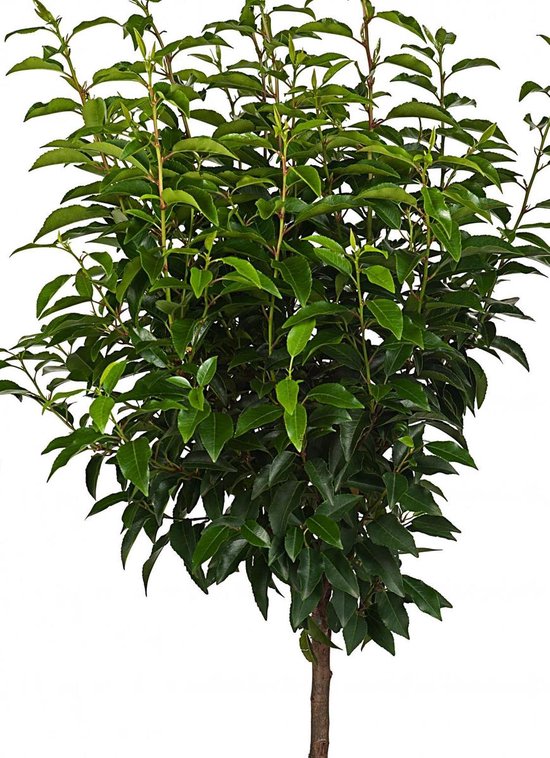
Prunus angustifolia Upload Image Print Version View Gallery 7 photos Family Rosaceae (ro-ZAY-see-ee) Info Genus Prunus (PROO-nus) Info Species angustifolia (an-gus-tee-FOH-lee-uh) Info Synonym Sun Exposure Full Sun Sun to Partial Shade Foliage Grown for foliage Deciduous Velvet/Fuzzy Height 15-20 ft. (4.7-6 m) 20-30 ft. (6-9 m) Spacing
Portugese laurierkers op stam Prunus Lusitanica Angustifolia 85 cm
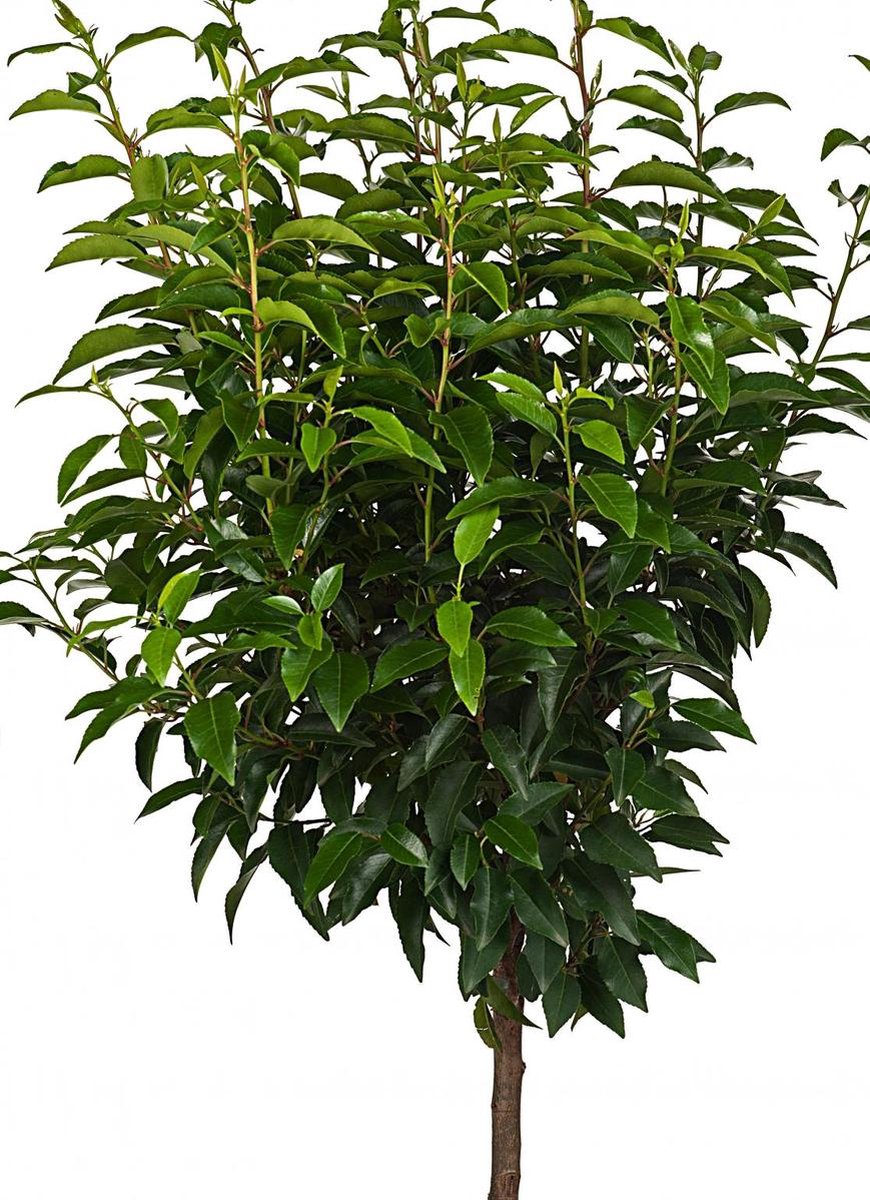
Description Guthrie chickasaw plum is a short, thickly branched shrub. It is native to North America. Needs little maintenance, drought tolerant, fast growing, self-pollinating. Form: Irregular, round crown More information on Prunus angustifolia. See this plant in the following landscape: Cultivars / Varieties: Tags:
Prunus lusitanica Angustifolia Portugese Laurierkers op 100cm stam online kopen

Plant Guide CHICKASAW PLUM Prunus angustifolia Marsh. Plant Symbol = PRAN3 Contributed by: USDA NRCS Manhattan Plant Materials Center, Manhattan, Kansas & Kansas State University, Forestry Research Figure 1. Chisholm Germplasm Chickasaw plum in fruit. Photo by John M. Row
Portugese laurier op stam (Prunus lusitanica
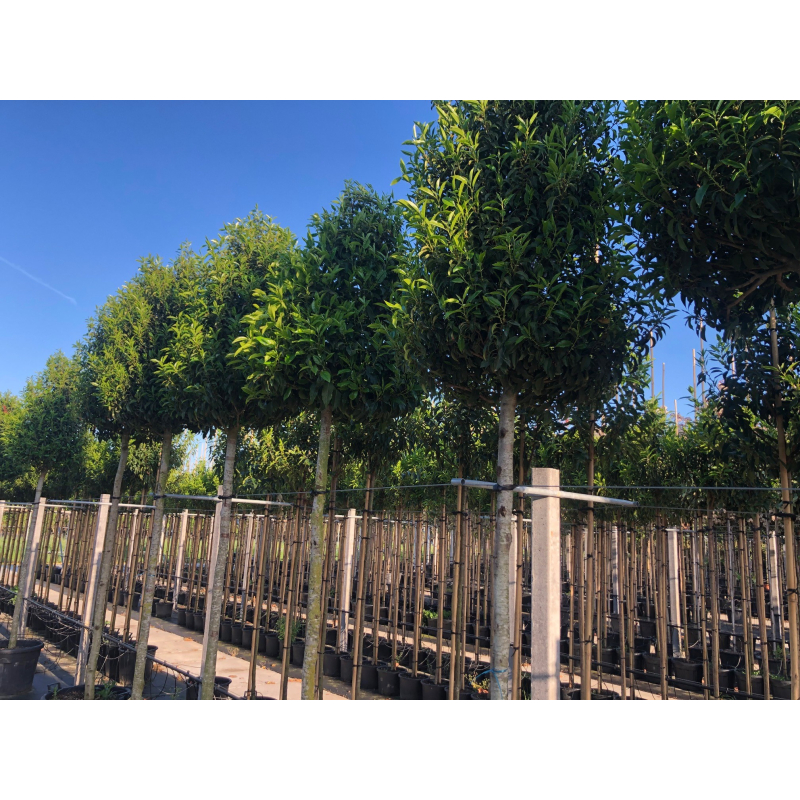
Prunus lusitanica, the Portuguese laurel cherry or Portugal laurel, is a species of flowering plant in the rose family Rosaceae, native to southwestern France, Spain, Portugal, Morocco, and Macaronesia (the Azores, Canary Islands and Madeira).. The split between the two subspecies (subsp. azorica, found in the Azores, and subsp. hixa / subsp. lusitanica, found elsewhere) is dated around the.
Portugese laurierkers op stam Prunus Lusitanica Angustifolia Totale hoogte 85 cm
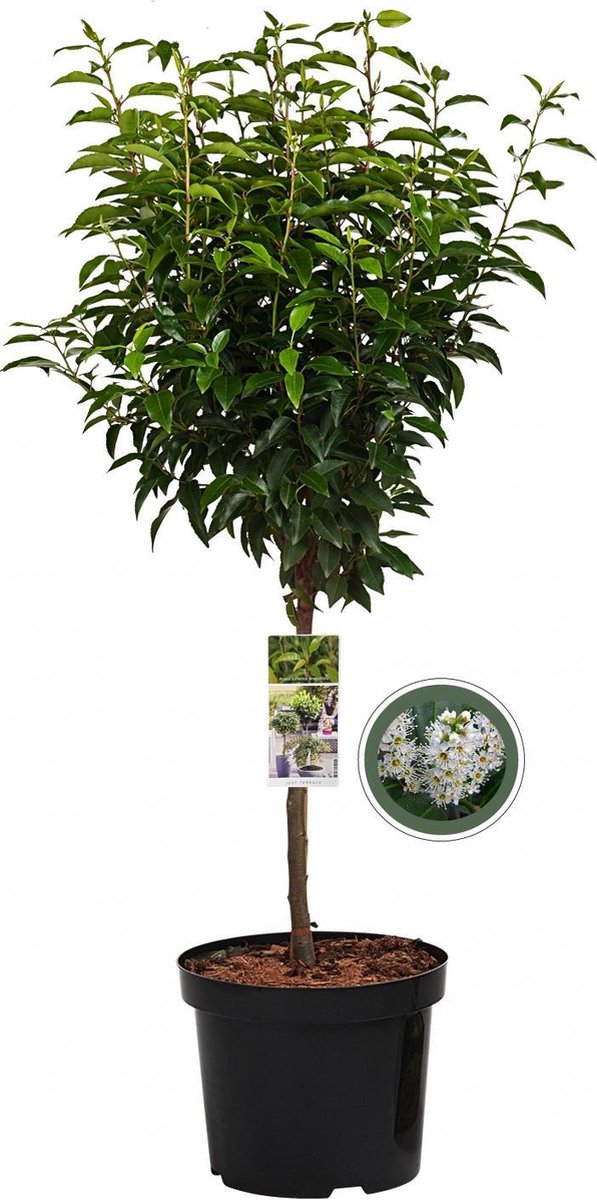
Prunus angustifolia $ 27.95 - $ 32.95 Add to basket Product Details Spring Shipping Season All orders placed will be shipped during our Spring shipping season. All trees will be shipped bare root and dormant. Spring Season shipping schedule: Plant Zones 9-8: Late January-February Plant Zones 8-7: February-March Plant Zones 6-5: April-earlyMay
Portugese laurier op stam (Prunus lusitanica Angustifolia) Prunus, Groenblijvend, Stam

Prunus angustifolia Common Name (s): Chickasaw Plum Phonetic Spelling PROO-nus an-gus-tee-FOH-lee-uh This plant has medium severity poison characteristics. See below Description Chickasaw Plum is usually a shrub that may grow 15 feet tall. The leaves are alternate with a finely toothed margin.
Portugese laurier op stam Prunus lusitanica Angustifolia

Prunus angustifolia is a deciduous Tree growing to 3 m (9ft 10in) at a medium rate. See above for USDA hardiness. It is hardy to UK zone 6. It is in flower in April, and the seeds ripen from June to July. The species is hermaphrodite (has both male and female organs) and is pollinated by Insects. Suitable for: light (sandy), medium (loamy) and heavy (clay) soils and prefers well-drained soil.
Prunus Lusitanica Angustifolia op stam

Species Name: Prunus angustifolia . Plant Type: Woody. Family Name: Rosaceae, Rose Family . Examples of Sand Plum Prunus angustifolia. Forms large thickets. Larger stems have stout thorns. Reddish-orange fruits. Shiny ligh green leaves; sometimes curved and partially folded. Shiny, zigzagging, reddish twigs . Plant Facts ; Origin:
Prunus Lusitanica Angustifolia op stam Goedkopeolijfbomen.nl

The Alabama Plant Atlas is a source of data for the distribution of plants within the state as well as taxonomic, conservation, invasive, and wetland information for each species. The website also provides access to a database and images of plants photos and herbarium specimens found at participating herbaria.